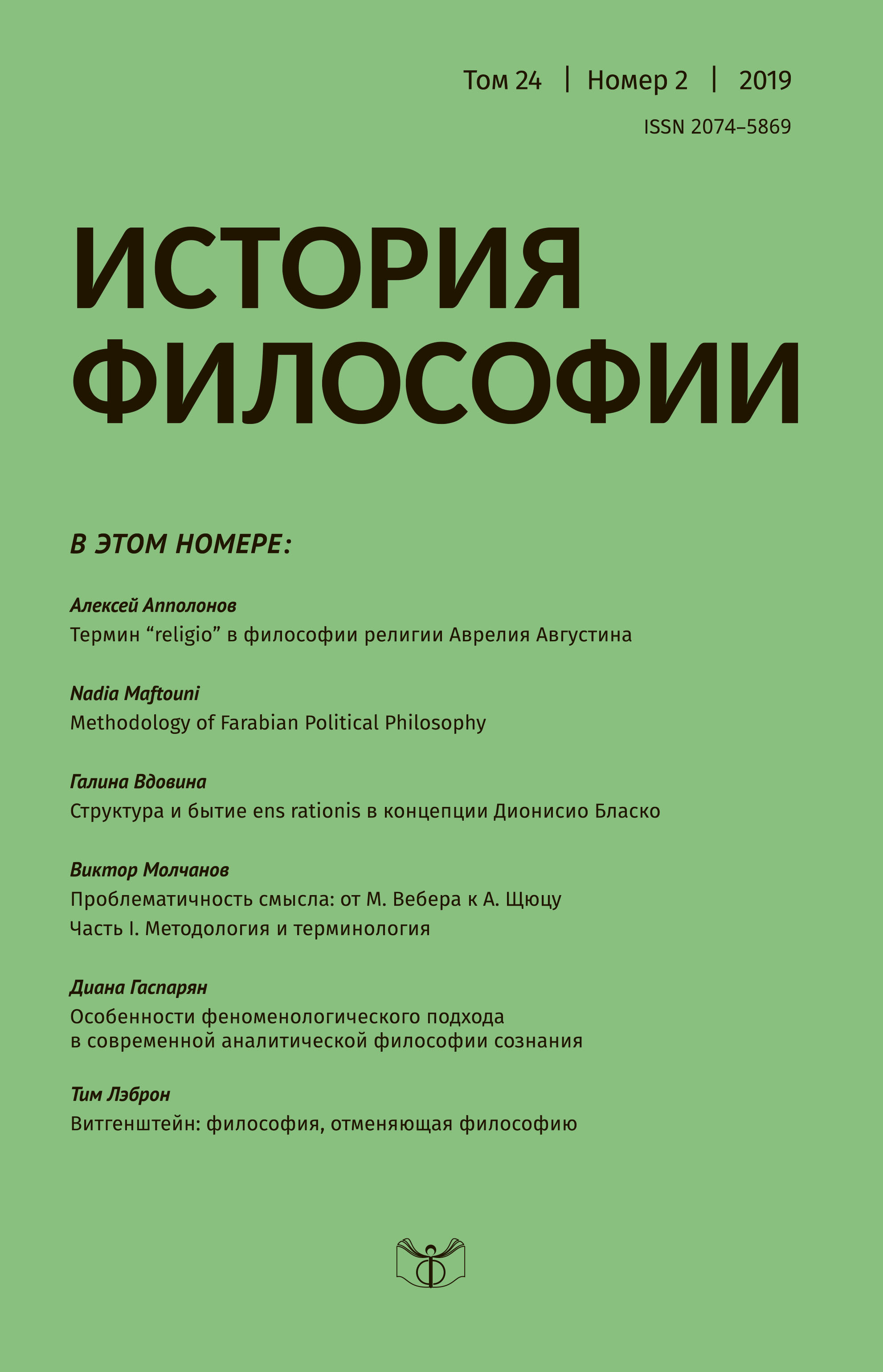The Term “Religio” in Saint Augustine’s Philosophy of Religion
DOI:
https://doi.org/10.21146/2074-5869-2019-24-2-20-30Keywords:
Saint Augustine of Hippo, W.C. Smith, notion of “religio”, philosophy of religion, history of philosophy, patristics, Christian theology, history of religionsAbstract
The article discusses the use of the term “religio” in the works of Saint Augustine of Hippo. The
author contests a hypothesis that Saint Augustine could not make use of the universal concept of
“religion” and, accordingly, the term “religio” in his works means not religion, but something
completely different (for example, according to W.C. Smith, the mystical “vivid and personal confrontation
with the splendour and love of God”). The author shows that for Saint Augustine “religio”
in some cases definitely meant cult and cult practices that were interpreted by him – depending
on the object of worship – either as false religious traditions, or – in the case of worshiping the
true God – as unique true Christian religion, which incorporates as its inalienable element an accessible
to external observation (and in this sense “objective”) system of beliefs and moral norms.

